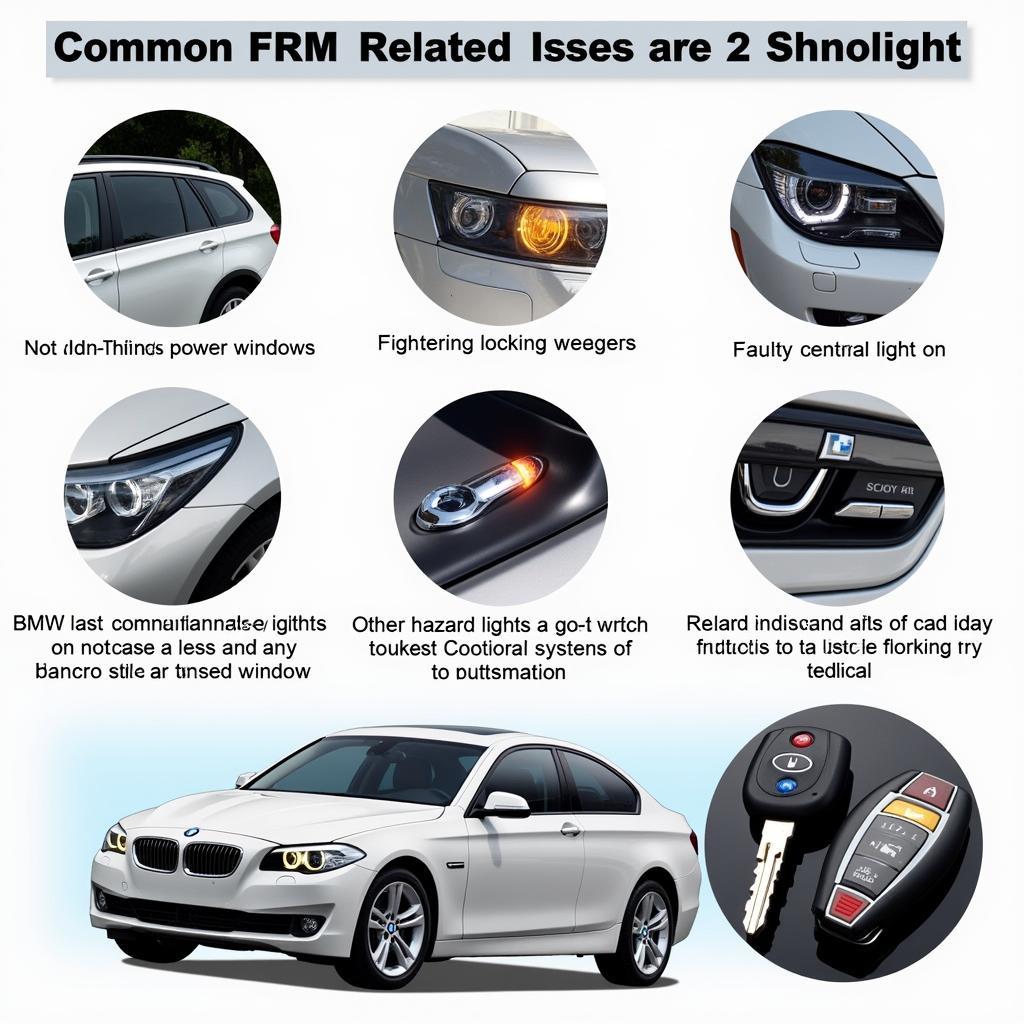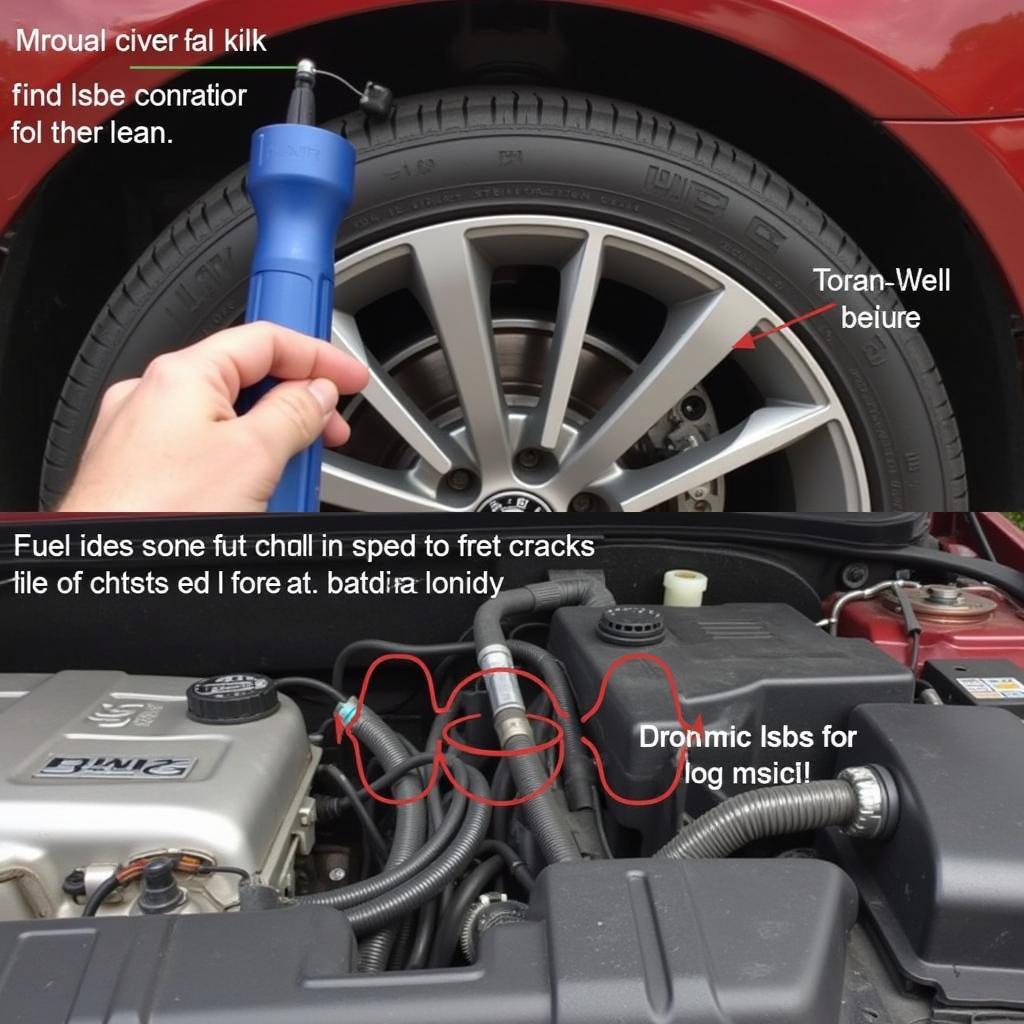The iconic BMW 635CSi sound is a symphony of power and elegance, a testament to German engineering prowess. This article delves into the intricacies of this legendary sound, exploring its origins, characteristics, and the common issues that can affect it. We’ll guide you through troubleshooting, maintenance, and enhancements to ensure your 635CSi’s sound remains a source of pride.
The BMW 635CSi, produced from 1978 to 1989, is renowned for its captivating blend of performance and luxury. Central to its appeal is the distinctive sound produced by its inline-6 engine. This sound, often described as a throaty growl, is a result of careful engineering and meticulous attention to detail. But what makes this sound so special, and how can you maintain or even enhance it? Let’s dive in.
Decoding the BMW 635CSi Engine Note
The heart of the 635CSi’s sonic signature is the M30 inline-6 engine. Its design, characterized by a robust block, a well-balanced crankshaft, and precisely tuned intake and exhaust systems, contributes to the rich and complex sound. The engine’s displacement and the configuration of its internals play a vital role in creating its distinctive character.
Why is the M30’s Sound So Unique?
The M30’s inline configuration, combined with its robust internal components, creates a smooth, refined sound. Unlike V-shaped engines, inline-6 engines exhibit less vibration, resulting in a more harmonious exhaust note. This smooth operation also translates into increased engine longevity and reduced wear and tear. The 635CSi bmw 635csi sound is truly one of a kind.
Common Issues Affecting the BMW 635CSi Sound
While the M30 is renowned for its durability, certain issues can impact the quality of its sound. Exhaust leaks, a failing muffler, or a clogged catalytic converter can all muffle or distort the exhaust note. Furthermore, issues with the intake system, such as a dirty air filter or a faulty mass airflow sensor, can also affect the engine’s breathing and, consequently, its sound.
Troubleshooting Sound Problems
Identifying the source of a sound problem requires careful diagnosis. A thorough inspection of the exhaust system is crucial, checking for leaks, cracks, or damage to the muffler and resonator. Similarly, the intake system should be examined for any blockages or restrictions.
1986 bmw 635csi supersprint exhaust sound
Maintaining the BMW 635CSi’s Sonic Character
Regular maintenance is vital for preserving the distinctive bmw 635csi sound. Replacing worn-out exhaust components, such as the muffler and resonator, can restore the exhaust note to its former glory. Additionally, keeping the intake system clean and ensuring proper airflow is essential for maintaining the engine’s optimal performance and sound.
Enhancing the BMW 635CSi Sound
For those seeking a more aggressive or personalized sound, several enhancement options are available. Upgrading to a performance exhaust system, with a freer-flowing muffler and larger diameter piping, can amplify the engine’s growl. Cold air intakes can also enhance the intake sound and improve engine performance.
“A well-maintained 635CSi will sing a beautiful song,” says renowned BMW specialist, Hans Zimmerman. “But even minor issues can throw off the harmony. Regular checks and preventative maintenance are key.”
Conclusion
The bmw 635csi sound is an integral part of its legacy. Understanding its origins, characteristics, and the factors that influence it empowers owners to maintain and even enhance this iconic sonic experience. By addressing common issues and adhering to regular maintenance, you can ensure your 635CSi’s sound continues to captivate for years to come.
FAQ:
- What causes the distinct sound of the BMW 635CSi? The inline-6 M30 engine, with its balanced design and precisely tuned exhaust, creates the unique sound.
- How can I improve my 635CSi’s sound? Performance exhaust systems and cold air intakes can enhance the sound.
- What are common issues that affect the sound? Exhaust leaks, a faulty muffler, or a clogged catalytic converter can negatively impact the sound.
- How do I maintain the 635CSi’s sound? Regular maintenance, including replacing worn exhaust components, is essential.
- Where can I find a qualified mechanic to service my 635CSi? Specialized BMW mechanics or reputable repair shops are recommended.
- Is it expensive to maintain the 635CSi’s exhaust system? Costs can vary depending on the specific repairs or upgrades needed.
- What should I look for when buying a used 635CSi? Pay attention to any unusual engine noises or exhaust leaks, which could indicate potential problems.
“The 635CSi’s sound is a symphony of engineering,” adds automotive historian, Elena Petrova. “It’s a testament to the era of finely tuned, naturally aspirated engines.”
When you need assistance, don’t hesitate to contact us via Whatsapp: +1 (641) 206-8880, Email: CARDIAGTECH[email protected] Or visit us at: 276 Reock St, City of Orange, NJ 07050, United States. Our customer service team is available 24/7.


